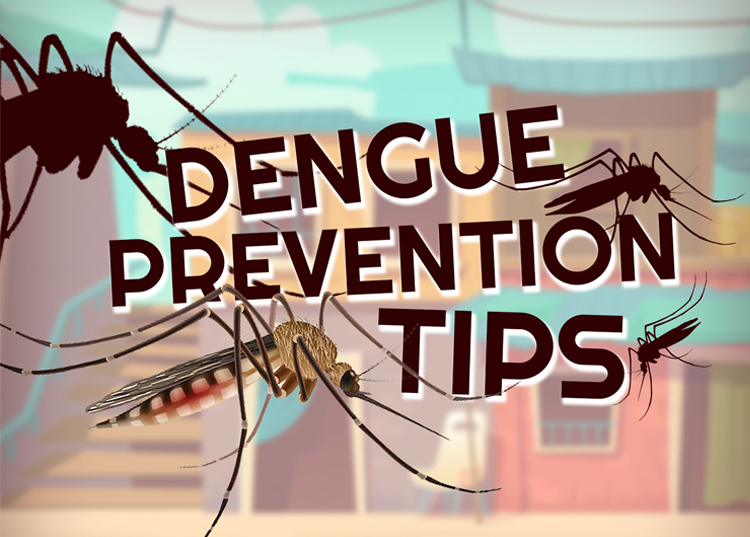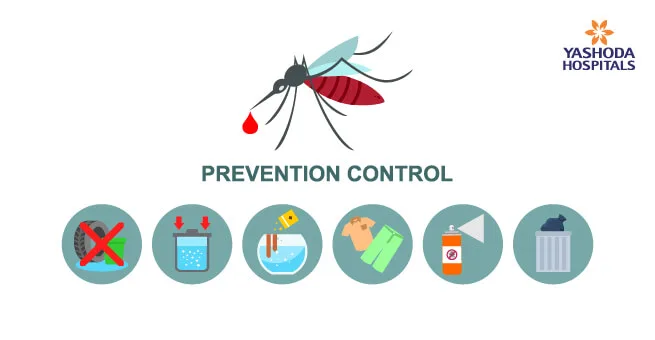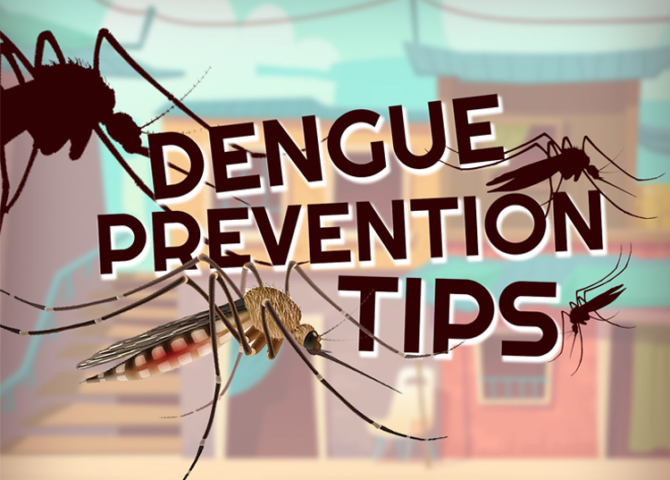
Dengue fever, a prevalent viral infection in tropical and subtropical regions, poses significant health risks to affected populations. Caused by the dengue virus (DENV) transmitted through the bite of infected Aedes aegypti mosquitoes, this disease can range from mild to severe, with severe cases potentially leading to shock and internal bleeding.
How To Prevent Dengue Outbreak?

Image via Yashoda Hospitals
To combat the threat of dengue outbreaks, proactive measures must be taken at the household level. Here are some crucial prevention strategies to minimize the spread of dengue within your home:
1. Eliminate Breeding Sites
Stagnant water serves as a breeding ground for Aedes mosquitoes. Discard any containers around your home that can collect water, such as old tires, cans, or bottles. Ensure that flower vases and pots are regularly cleaned and emptied to prevent water accumulation.
2. Secure Doors & Windows
Aedes mosquitoes are most active during dawn and dusk. Keep doors and windows closed, especially during these peak times, to minimize the entry of mosquitoes into your living spaces. Installing screens on windows and doors provides an additional barrier against mosquito intrusion.
3. Utilize Mosquito Repellents
Apply insect repellent to exposed skin surfaces when outdoors, particularly in dengue-prone areas. Mosquito patches, bands, or wipes are suitable alternatives for infants and children. These repellents serve as an effective deterrent against mosquito bites, reducing the risk of dengue transmission.
4. Combat Adult Mosquitoes
Employ aerosol insect repellents, mosquito coils, or electric vaporizers to eliminate adult mosquitoes within your home. Regular use of these products helps to control mosquito populations, thereby reducing the likelihood of dengue transmission.
5. Wear Protective Clothing
Covering exposed skin with long-sleeved shirts, long pants, socks, and closed shoes can significantly reduce the risk of mosquito bites. Opt for light-colored clothing, as mosquitoes are attracted to dark colors.
6. Time Outdoor Activities
Plan outdoor activities to avoid peak mosquito activity periods. Additionally, equip yourself with essential items such as mosquito repellents and netted sleeping bags to safeguard against potential mosquito exposure during outdoor excursions.
7. Use Mosquito Net
Sleeping under a mosquito net offers a dual layer of defense against mosquito bites for both you and your children, significantly reducing the risk of contracting mosquito-borne illnesses such as dengue fever. Additionally, mosquito nets are particularly beneficial in areas where mosquito activity is high, providing an added sense of security during sleep.
By adopting these proactive measures, households can effectively minimize the risk of dengue fever transmission within their communities. Prevention remains the cornerstone in the fight against dengue outbreaks, emphasizing the importance of individual and collective efforts in maintaining a dengue-free environment. Stay vigilant, stay protected, and together, we can mitigate the impact of dengue fever on public health.
Also, read this 6 Home Remedies Option To Fight Flu.










